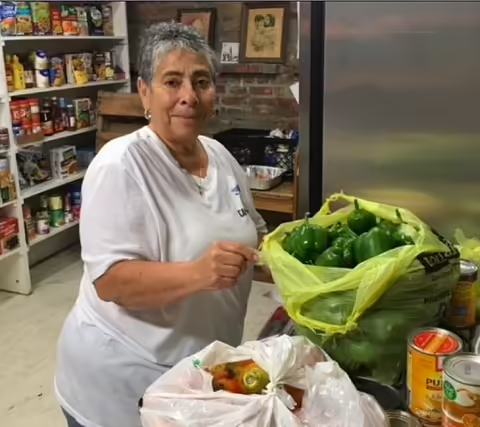
URBANA, Ill. – Food pantries provide much needed relief for food insecure individuals and families. But pantries often rely on donations of canned and packaged foods with limited nutritional value. Growing Together Illinois, a program from Illinois Extension, aims to provide fresh produce to food pantry clientele across the state.
A University of Illinois research team evaluated the program and found it to be successful in improving availability and distribution of fresh, nutritious foods.
Growing Together Illinois began in 2017 as part of a multi-state effort. It is implemented in collaboration between Extension’s Master Gardener program and Supplemental Nutrition Assistance Program Education (SNAP-Ed).
“The program donates fresh fruits, vegetables and herbs to the pantries. The overall goal is improved food access, but we also provide nutrition education and other support,” says Trinity Allison, SNAP-Ed senior program lead and co-author on the study.
Produce is grown in community gardens run by volunteers with assistance from Master Gardeners, who bring knowledge and expertise on planning, planting, maintaining and harvesting. SNAP-Ed staff assists pantries with handling and promoting the produce, and provides education on usage, recipes, and suggestions for bundling with other meal items.
Illinois Extension has created a Find Food IL map that people can use to locate food resources in their community. Search by zip code to find local food pantries and free meal sites, as well as grocery stores and farmers markets that accept SNAP and Special Supplemental Nutrition Program for Women, Infants, and Children (WIC) coupons.
Read more from the College of Agricultural, Consumer & Environmental Sciences
